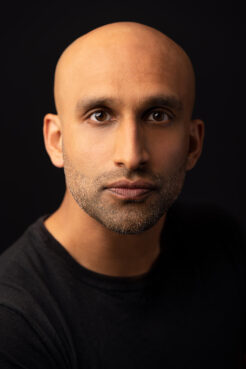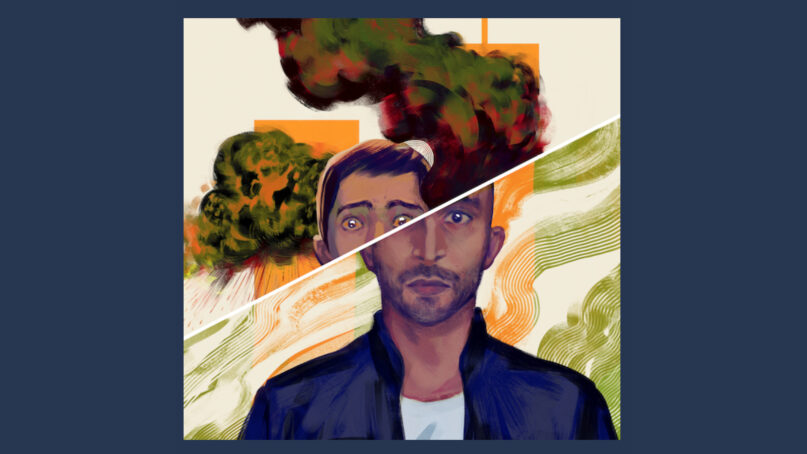(RNS) — A new podcast seeks to engage with the myriad ways life has changed for Muslim Americans since Sept. 11, 2001. In seven roughly hourlong episodes, host Shahjehan Khan looks at how Muslim life in America has changed in the last 20 years, for worse and for the better.
“King of the World” — a translation of the host’s name — officially launched in February, but Khan, a veteran podcaster, has dreamed for years of capturing the Muslim American experience after the 9/11 attacks.
Khan and many other Muslims who were in their early 20s and late teens in 2001 suddenly found their Islamic identity thrust upon them by the attention paid to Muslims after the attacks. After Sept. 11, the Muslim American community found itself the target of increased scrutiny from federal and local law enforcement focused on domestic terrorism. Every Muslim, regardless of piety or the importance of other identities, became a Muslim first and foremost.
Khan says that at the time, he was struggling internally with his relationship to the broader world when he was faced with this wave of Islamophobia. He said it is one factor that led him to attempt suicide while in his early 20s.
RELATED: Trump is gone, but Muslim federal workers say reforms are still needed

Shahjehan Khan. Photo courtesy of Rifelion Media
“There were proclivities toward depression and anxiety already there, which certainly were not helped by discrimination and othering, whether overt or more subversive or ‘micro’,” he said. “All of this was combined with an extremely heavy and isolating form of cannabis use which left me quite despondent, and all of these things together ultimately led to the decision to take my own life.” (Khan has been sober now for more than a decade.)
His story is not unique. Many young people spend their early 20s fleshing out aspects of their identity, from career goals to how they feel about their faith. For many Muslims of the 9/11 generation, this formative period was truncated, as their fellow citizens demanded an answer as to who they were.
Khan is a Pakistani American Muslim, but “King of the World” includes a wide range of immigrant and first-generation Muslim voices, and those of others swept up in the Islamophobia of the time.
RELATED: 9/11 and Muslims’ mental health
“One of these experts specifically calls out how the Sikh community was targeted post-9/11,” said Asad Butt, the founder of Rifelion Media, the company behind the new podcast. “We talk a lot about representation in the media of Muslims and South Asians and its effect on us all.”
One episode includes the story of an American Muslim who was spied on by the New York Police Department; in another, the government attempts to turn a Muslim citizen into a spy informing on his own community. “They imprisoned him when he refused to do so,” said Butt.
The podcast, however, is not without its positive moments. “There have been many,” said Butt. “Keith Ellison being sworn into Congress using Thomas Jefferson’s Quran, ‘Ramy’ becoming a hit TV show, Ibtihaj Muhammad winning a medal at the Olympics, Zahid Quraishi confirmed as the first Muslim American federal judge.”
It’s enough to give Muslim Americans faith that they could be, if not king of the world, then fully at home, at home.





